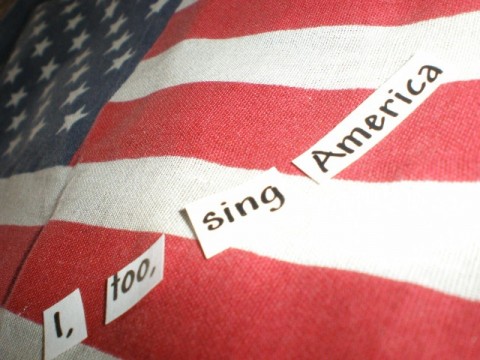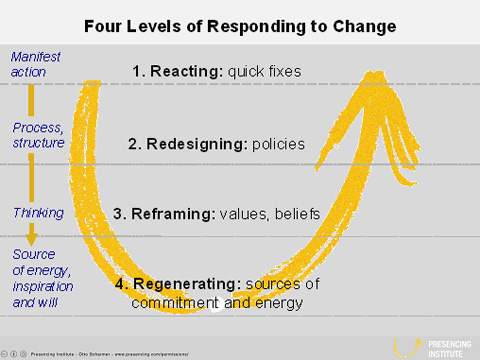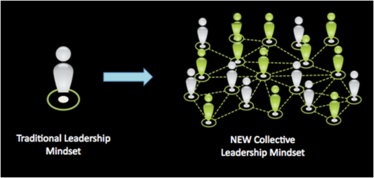Gravity and the Overview
I saw “Gravity” last night. It was a fun thriller, relatively formulaic; and yet, also of great importance. It is significant that “Gravity” has been the top seller at the box office three weekends in a row.
Leave a commentI saw “Gravity” last night. It was a fun thriller, relatively formulaic; and yet, also of great importance. It is significant that “Gravity” has been the top seller at the box office three weekends in a row.
Leave a commentThe following comments was posted by Gibran as a response to Curtis Ogden‘s Collective Impact and Emergence blog post. In it we are challenged to think beyond our institutions and think about how to truly impact the communities we work with.
This is excellent Curtis. It brings me back to one of our most important inquiries – how do you nurture the conditions for emergence? With this inquiry, we are not just saying that emergence happens; we are saying that our best approach is to nurture it. It is a significant shift from a more top-down technical approach.
Leave a commentDavid Peter Stroh hits the nail on the head with his recent post on the relationship between systems thinking and spiritual practice on the Leverage Points Blog. Our ways of seeing and ways of being are profoundly affected by our interior condition. Many aspects of systems thinking are deeply aligned with the wisdom of many spiritual traditions.
1 Comment“If it’s work we try to figure out how to do less, if it’s art we try to figure out how to do more.” Regular readers of our blog know that we are big fans of Seth Godin here at IISC. And if you’ve been to anything I’ve trained or facilitated you have probably heard me rail against the dominance of an obsolete industrial paradigm.
In this video, Godin asks “What is school for?” and he clearly points to all the industrial trappings that are badly limiting how we educate our young – even in “high performing” contexts. We are in the middle of a significant paradigm shift, and this is one of our most important questions.
5 Comments
It is early Easter Sunday morning before the ham and scalloped potatoes go in the oven but after sunrise and meditation. This particular holy day/holiday brims with meaning and metaphor about death and resurrection: the suffering and darkness that always precedes awareness and light, the old giving way to the new, the biblical nature of the times within which we live.
Leave a commentI am made greater by the sum of my connections, and so are my connections
– Stowe Boyd
Today, Curtis Odgen and I will be hosting an LLC Webinar on Collective Leadership. We are talking about a significant shift in how we organize our work for social transformation. Stowe Boyd, the net’s social anthropologist, recently posted what he calls the beginnings of an elevator pitch on “New Mutualism.” I found it resonant, relevant and tremendously exciting; here it goes:
4 CommentsThe following post is from Founding Board Chair, Thomas J. Rice. It is a little longer than we post, however, we hope that you will find it is rich in content and helps continue to challenge the way we think about various systems and movements.
Historian James Truslow Adams defined the American Dream when he coined the term at the depths of the Great Depression. What we seek is “a land in which life should be better and richer and fuller for everyone.” If there’s one thing we could all agree on, we have lost our way in this quest. And there’s no GPS to find our True North, or the way home.
Enter the Occupy Movement, a spontaneous cri de coeur from a millennial generation that feels betrayed and abandoned by the people and institutions they believed in. No American Dream for them. Their prospects are bleak, in no way better or richer or fuller than their parents. In spite of great effort and expense to move up and out, the millenniums are back in the nest, in serious debt from college loans and working at some menial or dead end job with no health benefits.
Leave a comment
I too, sing America
I am the darker brother.
They send me to eat in the kitchen
When company comes,
But I laugh,
And eat well,
And grow strong.
Tomorrow,
I’ll be at the table
When company comes
Nobody’ll dare
Say to me,
“Eat in the kitchen,”
Then.
Besides,
They’ll see how beautiful I am
And be ashamed –
I, too, am America.
~Langston Hughes
I write this on a train to New York City, after a whirlwind half-weekend in the nation’s capital a/k/a Chocolate City. My time spent in DC is always edifying — good for my soul. Monday, I attended the opening day of what I expect will be a history making event – the Take Back the American Dream Conference 2011, sponsored by the Campaign for America’s Future and the Institute for America’s Future. Read More
5 CommentsI had the pleasure of meeting Jennifer Sertl on the twittersphere. Together with Koby Huberman, they have written a book that seems to touch on many of the aspects of this paradigm shift that I spend some much time writing about. It looks like in writing Strategy, Leadership and the Soul Sertl and Huberman are articulating a series of powerful responses to the changes our organizations are experiencing. I see a lot of alignment between the principles outlined in this 3 minute video and the work we do here at IISC. We are moving forward, see what you think.
Leave a comment
Click here to see the 1st proposition
The 2nd proposition of Theory U reads:
(1) The leadership process requires three movements: (1) establishing the horizontal connection (“observe, observe, observe”), (2) establishing the vertical connection (“connecting to Source”), and (3) acting from what emerges in the Now (“acting in an instant”).
Leave a comment
I am a huge fan of C. Otto Scharmer’s Theory U. It is one of the most powerful frameworks for understanding the essential shifts we need to make as we step into this paradigm shift. Scharmer sums up his Theory U with seven propositions, I’m going to write a series of blog posts taking a closer look at each of them: Read More
3 Comments
This is a very exciting time for those of us who are working to apply the logic of networks to the work of social change. Our ideas are gaining traction as more and more experiments start to point towards success. Life online, the viral nature of meaningful stories and our human desire for deeper connection all serve to confirm our intuitive understanding of life in a network. However, as we step into this paradigm shift, as we start to approve of these ideas, we still have to contend with the constraints of the organizational and funding structures within which we currently work. Read More
Leave a comment